Planet Primate I
The only thing better than a great movie is a great movie franchise.
A movie franchise is a collection of movies linked by title, characters, or fictional universe. They can be extremely effective in cementing themselves within the collective psyches of generations of real-world people, leaving lifelong legacies in the filming space. Lord of The Rings, Indiana Jones and Harry Potter are just a few massive movie houses who catapulted themselves beyond the screen into what is now globally used vernacular, cultural references and unyielding flows of profit throughout many industries.
Hollywood’s longest-running movie houses.
Usually based upon the solid foundation of a comic or novel, successful movie houses combine delicious measures of direction, casting, production, storytelling and most crucial of all, character development. It’s pretty powerful stuff when it’s done well.
That being said, not every movie warrants a prequel or sequel. I wince each time I remember Taken was given not only a second but third installment - why dull the shine of a decent original?
Every once in a while though, the magical studio stars align and a franchise comes along that embodies all a great movie house requires.
Enter: The Apes.
Rediscovery
Planet of The Apes (POTA) offers persistently high-end cinematic storytelling and while I’m no movie critic, I indulge in movies to an embarrassing degree with POTA always, and I mean always, having stood out as special. I never probed myself enough to wonder exactly why it’s so special to me, so that’s why I decided to write about it.
Ignoring my own opinion, the global success of the film series speaks for itself. The POTA movie house is one of the longest running science-fiction film series of all time. It’s held the curiosity of it’s audience for decades, has grossed over $2 billion worldwide and is considered across many publications a consistently good block-buster movie series.



In the order they appear: The New York Times, Accolades, The Guardian.
Re-watching films has always been a habit of mine but particularly due to the Hollywood writer’s strike of 2023 where cinema took a whopper hit in terms of quality and quantity, re-watching was definitely the best entertainment option last year. With the end of said strike and order restored once more between writers, actors and studios, cinema has been gaining it’s glory back.
This fact led my friend and I to the movies. Kingdom of The POTA was our film of choice and it’s safe to say I had to retrieve my jaw from the floor. Not because the movie was so completely out of this world (it’s good, yet the weakest of the current series for me) but because it re-ignited my fascination with this completely - excuse my Americanism - epic movie house.
What ensued was a late night journey back to the 2011, 2014 and 2017 second-rebirth installments of the franchise.
Chronology
Allow me to explain what I mean by second-rebirth. The POTA franchise is somewhat of a nightmare to navigate chronologically.
Even in-universe it’s a mess.
Many other movie houses adhere to a book or collection of books as reference points and release a corresponding version of what the book/book series offer. The Lord of the Rings origins are three volumes of books and there were three corresponding movies made. Harry Potter’s origins are seven fantasy novels and eight corresponding movies were made with the final installment being split into two parts.
POTA is different as it’s not a single franchise. There have been a few interpretations of it’s original form…
The Original Text (1963)
What initially birthed the iconic fictional universe was a novel written in 1963 by french author, Pierre Boulle, about the existence of an intelligent ape civilization on another planet and the events that occurred following human discovery of said planet. This novel was not just a good story. It raised huge questions about society, racism and politics, and was far more than just an adventurous ‘Ape vs Human’ journey.
La Planète des singes (1963), the original text before translation.
The novel was translated to English and in 1968 a widely successful film adaptation was released, followed by four film sequels. The original movie installments were very popular. Today the special effects are dated but these movies are timeless and the general sentiment then, and now, is that the movies do the novel total justice.
So far, so good.
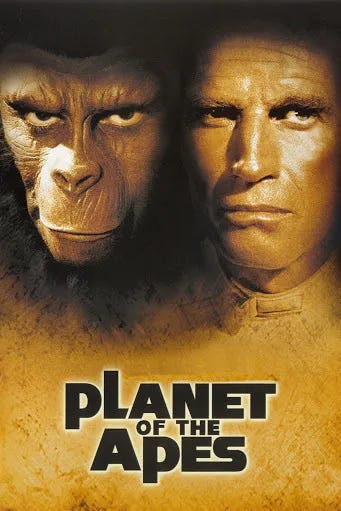

Nothing to scoff at: For a movie series produced in the 60’s it’s online stats are pretty impressive.
Tim Burton’s Attempt (2001)
Along came a bit of a car-crash attempt at POTA. Burton’s interpretation of the novel was a flop, leaving audiences disappointed by a hyper-focus on action and special effects over the depth and storytelling primitively crafted by the novel. The undertones of socio-political issues, which are the heartbeat of the franchise, were not present in this movie and critics struggled to identify this movie as anything more than a lukewarm action film.
The ‘failed’ first rebirth (2001)
The poor reviews of Burton’s rendition meant there was no sequel. Onlooking directors were reluctant to curate their own POTA and ultimately nobody went near the franchise for a decade.
B I N G O
Ten years later (2011) we got a second reboot and it was quite the resurrection; a total box-office hit despite initially doubtful audiences. The attitude before the release of more POTA media was skeptical exhaustion, especially considering the 2001 installment’s shortfall. This rebirth, crucially, was not a retelling of the original story but a brand new storyline heavily inspired by the novel.
Unlike the novel, these movies are not set in space or very far into the future. They are located on Planet Earth with a mixture of present day and futuristic timelines. Within the universe itself these secondary reboot movies are set before the apes ever make it to another planet.
The second reboot consists of 4 movies so far:

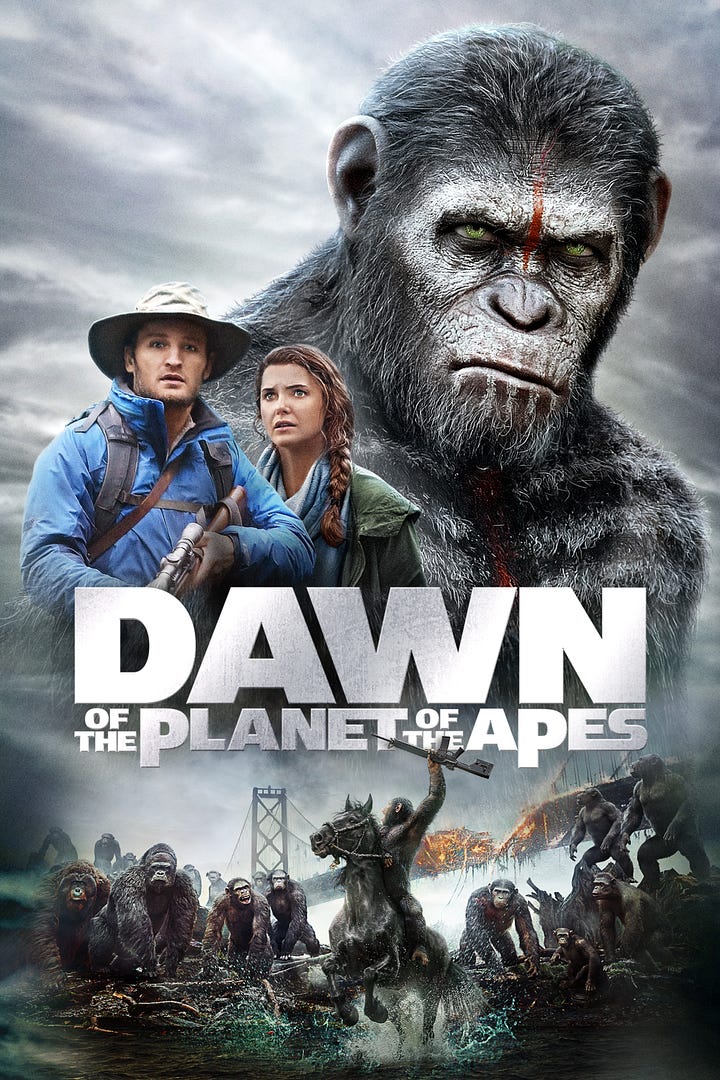
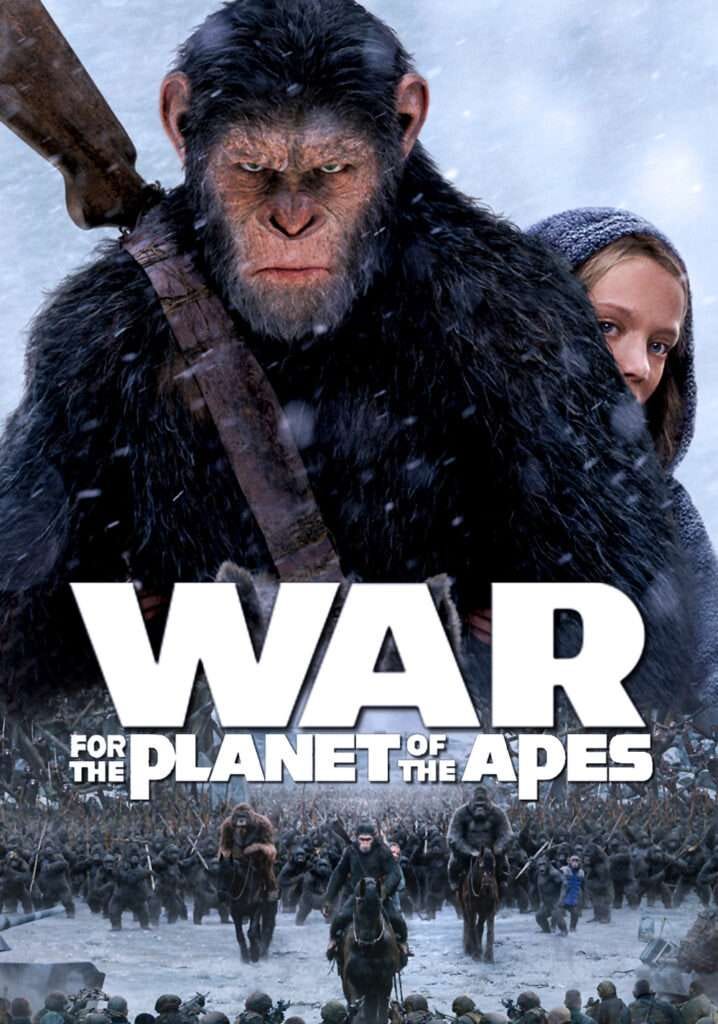

Rise (2011), Dawn (2014), War (2017) and Kingdom (2024)
This particular series, the second reboot or second rebirth, is the one that has my heart. These movies are completely captivating, violent and cinematically gorgeous. Before diving into that I want to leave some info-graphics below that explain the chronology in 1) The order they were released and 2) The in-universe order.
1) Release order

2) Universe order
To take complications away from a messy timeline I personally view each of the series installments as stand alone productions, because that’s exactly what they are. There’s no point in trying to watch them in universe order because so many things won’t make sense and it wouldn’t make for a smooth viewing experience.
Watching the films in release order makes the best sense to me.
Girl, why are we discussing the chronology?
Before writing this I wanted to jump straight into why I’m completely obsessed with the second reboot series but it felt wrong to neglect the chronology because such a lengthy chronology proves a few things:
This universe truly matters to those that enjoy it.
The franchise has captivated audiences worldwide for the better part of a century - this is rare.
To have followed a cinematic flop with a masterpiece trilogy series is nearly impossible to do. Audience loyalty (particularly ‘spoiled-for-choice’ Hollywood) is very hard to gain back after a loss so it stands to show how great the second reboot really is.
The varied perspectives and attempts taken by studios and directors exhibit just how inspiring Pierre Boulle’s words were. He literally crafted a universe with his own imagination and written word that humans living long after him would connect deeply to - very cool indeed.
I’m being forced to take a break here because 1) I’m reaching text capacity and 2) I’m hungry in the State Library of Victoria and I swear to god if I even look at the banana in my bag someone is going to come over and warn me not to eat it.
Eating isn’t allowed in most libraries, I know, but you know the way in Ireland a lot of minor things are brushed off as ‘grand’? Well, you can be absolutely certain that in Australia it is not grand - nothing is grand here and rules are rules. I’ll come back and write ‘Planet Primate II’ next week with no bananas (or irony) in my bag.
I know I’d definitely like to dive into the following topics next week:
Caesar as hero
Effective communication (sign language, subtitles)
Stunning cinematography
Koba as villain
Motion-capture performances
Thank you for reading :)




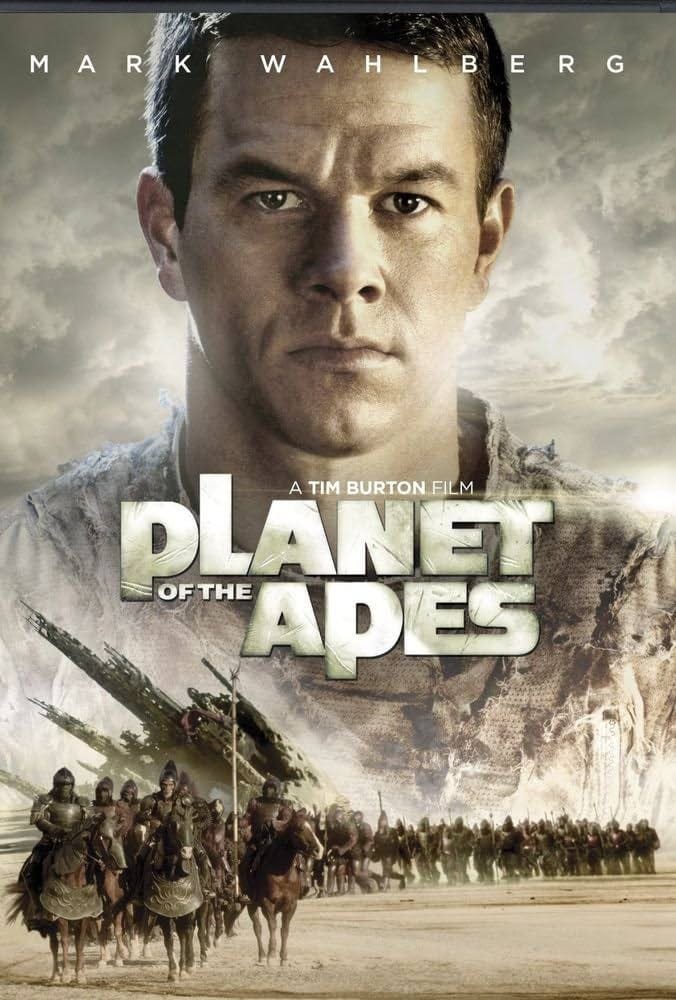

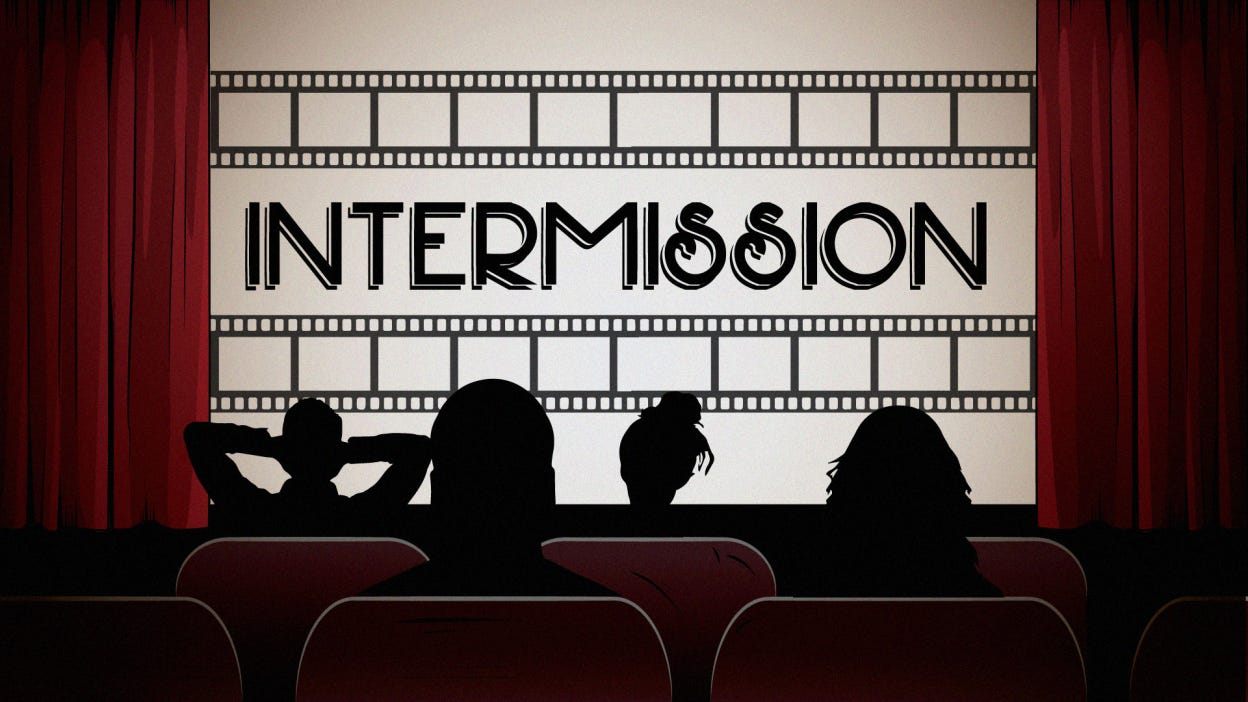
We must watch these together when we can.I might have to get a sneaky pre watch.